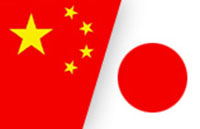The PLA is fully capable of safeguarding China's Diaoyu Islands, says spokesman
US President Barack Obama's promise of military cover for Japan's claim on the Diaoyu Islands faces the potential of backfiring, observers said.
Obama stated in a press conference in Tokyo on Thursday that the US-Japan mutual security treaty covers China's Diaoyu Islands.
 |
| Students use hugs to ease Sino-Japanese tensions |
 |
| Special: China-Japan relations |
The forthright remarks from Obama are widely interpreted as a display of Washington's strong commitment to its Asian allies designed to dispel suspicion of weakening US clout in the region.
Obama is on a four-nation tour that was postponed seven months ago because of the US government shutdown. He faced flak at the time for postponing the trip, both in the US and overseas, amid criticism that the US was preoccupied with domestic affairs at the expense of its international commitments.
Responding to Obama's comments, Defense Ministry spokesman Yang Yujun said that the Chinese army will continue military patrols in "relevant waters" in the East China Sea.
The Chinese military is "fully capable of safeguarding the Diaoyu Islands, and it is unnecessary for other nations to go to extreme lengths to provide a so-called security guarantee," Yang said, adding that China will firmly safeguard territorial sovereignty in the face of provocation from Japan.
Ruan Zongze, vice-president of the China Institute of International Studies, said Obama's remarks may lead to unforeseen problems because the military commitment — directly naming specific islands — could "sabotage US strategic initiatives in the region" and undermine its strategic flexibility.
"As a result, Tokyo is keeping Washington in check in this regard, and, honestly, the ruling Japanese cabinet is very unpredictable," Ruan said.
Ruan noted that Obama's remarks about the islands "also harm the credibility of the US", because instead of taking an honest broker's viewpoint the US is firmly backing one side and this has the potential to cause problems.
With Japanese Prime Minister Shinzo Abe beside him, Obama told reporters that he had not drawn any new "red line" over the islands, and he emphasized the need to resolve maritime disputes peacefully.
"The treaty between the US and Japan preceded my birth, so, obviously, this isn't a red line that I'm drawing," Obama said.
Li Haidong, a researcher of US studies at China Foreign Affairs University, said Obama's visit to Japan aimed to boost Japan's status as a "pillar" of Asia-Pacific security and as a key player in containing China.
But, Li said, the two allies have different agendas.
"The US seeks stability in the big picture of its relationship with China, yet Japan is not afraid of fanning the flames of a conflict with China," Li said.
The US-Japan defense treaty requires Washington to come to Japan's defense if it is attacked.
